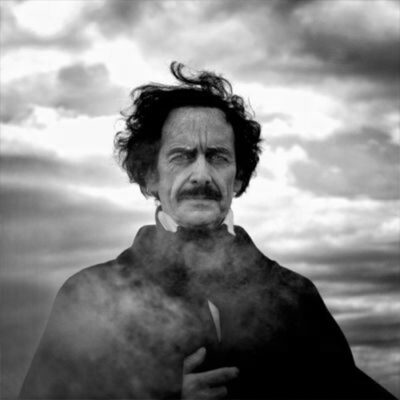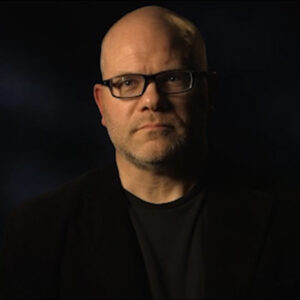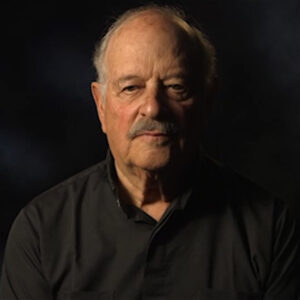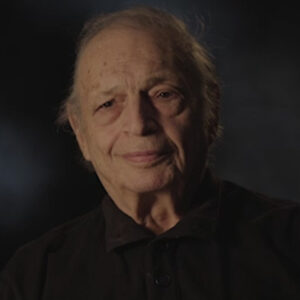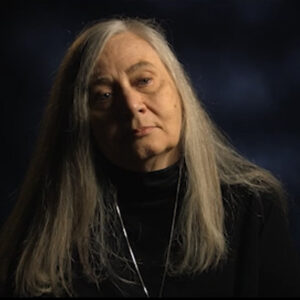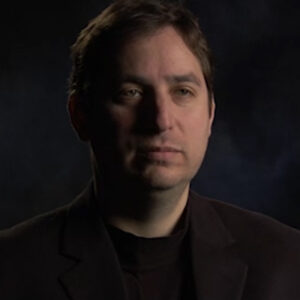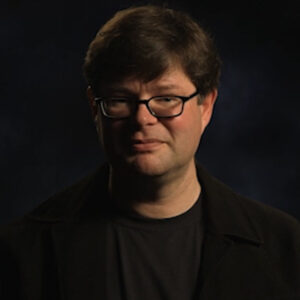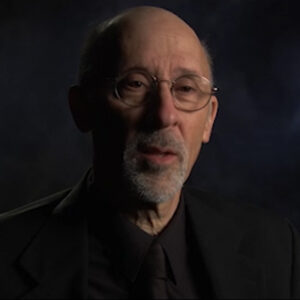Speaker So let’s start with these themes of loss and death throughout Poe’s work. When do you first see it and why? And I guess because because our film goes in different chronological pieces. Why don’t you start with this? Early is early years like like Tamburlaine when that’s published. What are you seeing in this young man in terms of loss and death?
Speaker Oh, I guess I’ve had Srour and melancholy touch. And from the very start, as you know, like the death of his mother died. He was only four years old. He was adopted by the foster parents, Francis and John Allen. And there was the story of Poe falling in love with Jane Stoddard.
Speaker I’m so sorry. Hang on one sec. We’re going to get. Because we need to adjust for your voice.
Speaker Oh, am I too quiet? So should I speak up a little bit? OK, little bit. Maybe a little bit more right then. And pull one here. Let’s start over again.
Speaker OK, OK, so yeah. Well, talk about the adolescent pillow.
Speaker The young man, the other adolescent po who father he fell in love with trainspotters, the mother, one of his schoolmates. And I guess that she embodied the image of both an ideal sweetheart and a loving mother for him. And unfortunately, she shortly died after Matt. So it seems like both the mother and the sweetheart were destined to death and are right. And Francis Allen, she also died for our age. So, I mean, there were these deaths. There was this melancholy that pervaded Poe’s life in a way. And also like it’s interesting how he projected many life events, like dramatic events in his life through his fiction while he was writing about the death of a beautiful young woman like the death of Luden and most cases to the death of his wife, Virginia, before she died. Elanora, for example. This is a very autobiographical tale, but it was published, as I remember, four years before Virginia claims death. And this tale. Poe narrates about the love of the main character, purist’s to his cousin and the death of the cousin. So that was just a post story. And what he sure Virginia was seriously ill at the time. She rather have that dramatic hemorrhage and her blood vessel broke, but still she was still alive and he was already writing about her death before she actually died. I guess I remember Charikar wrote about it. It’s really spooky and it’s really odd when you think about it. And yet maybe here I would like to concur with how Poe. But surely we should not really. At the same time, we shouldn’t really take for granted the melancholic image of Poe. The image of is a dark genius because we should remember that it was invented by his great French admirer, Charbel there. And then it was widespread and the whole world and it was it returned to the United States at the turn of the 19th twentieth century in the image of a southern angel. The began you know, this was Poe who was always tragic, was melancholic, was like this dark, mad genius. And but where he actually he drew himself on he drew on Rufus Griswold and John Donnell’s, like their first biographies of Poe, who portrayed him as a mad man. Griswold was writing about hope, train him as a madman, wandering through the streets and talking to himself. And it’s not surprising. And say a Russian follower of childhood circumstance in Beaumont was a translator of Poe, wrote in his essay about Poe that Poe never smiled. So that was the image of Poe. And sure, like he there was this positive side. And Poe was a cheerful person. I had many friends and I really should. Wow. Should should really take that into account. And it’s really surprising that while this myth no longer exists within Posadas, it keeps reweight in popular imagination and popular perception of Poe.
Speaker Yeah. So why why does the general public want to hold on to this myth of the dark? Oh wow.
Speaker It’s the long story of this myth because like butlering. Image got changed and then Apple became the most of them, Cober has caught people’s nicely, put it, and I guess he’s satisfied the the public’s desire for sensational because it’s definitely more interesting to have people talk mad and melancholic rather than cheerful and positive and likelike as he himself was exploiting this interest in the sensational in his lifetime. So did the creators, the inventors of his new image in the 20th century. So I guess it’s but it’s really sometimes it’s hard to explain. But also this image was very iconographic. You think of people who never smiles. How can you look at the image of Poe? And he’s always his with his raven and he’s always sad. It’s really part of his image. And it’s really hard to challenge the stereotype because it has become a stereotype.
Speaker Let’s talk about people going back and just just contain it to the young PO and his his attempts to create his own image to self create a kind of Byronic sensitive poet. Moody.
Speaker Yeah, like I mean, and it was a really in the fashion of the time. I mean, Pirenne was extremely popular. For example, just just to give an example, Poe wrote, This Byronic tale is only purely Byronic tale is the tale called The Visionary. It’s more and better known as an assassination, which sure. Assassination, I guess. That’s right. So it was written in 1834 and published in the eighth volume of the God, his latest book that was almost entirely dedicated to Lord Byron because there was a range of Baran’s Priam. There was Barnes biography. There was even an essay describing Horenstein, Venice and oppose the visionary takes place in Venice.
Speaker There was a character who was recognizably Byronic features. So Poe’s story really fit in this fashionable magazine because the God, his latest book was a magazine of fashion, which with actual fashion plates and Byron was a fashionable figure.
Speaker So all nicely coincided in a way. So besides that, Poe was actually he was a good athlete. He was a good swimmer, just like Byron. And he he swam seven and a half miles from Richmond to what we can, was extremely proud of it. And like a good example of Poe’s Byronic image is his autobiographical note that he wrote in 1841 when he ran a reinvented recreated his fictional biography.
Speaker I’m sorry, I woke up and just say, you could put it in the context of people who liked to create an image. Oh, he did, for example, in 1941 and ASPO liked. OK, sorry. Yeah, ok. Yeah. OK, start up again.
Speaker I liked inventing his own image and in 1841 he reinvented his Lavalife story in Byronic fashion. He wrote that after university he left the United States for Europe or with a cohort of contention to join the Greeks in the struggle against the Turks for liberty. Just like Lord Pirenne did it. I was utterly Byronic, had he its cures, but he failed and his fictional account of his life, he failed to reach Greece and he ended up in Saint Petersburg, Russia instead. But he had some difficulties and was given how by hand. Middleton Middleton from South Carolina was an actual U.S. counsel in St. Petersburg at the time. And I was always wondering why would Poe and up in St. Petersburg and wouldn’t want to fail are rich in Greece? And I’m kind of thinking that was that that was also ironic, because if you think of Baran’s, Dongshan Dongshan was in Greece first, then he went to Russia via Turkey. So bringing Greece and Russia together was not so far fetched. And I think Pope could have shaped his own life. FALOON Byronic character no. The vote of Byronic character. This move was really powerful and was extremely powerful in the United States, and it was exaggerated by Rufus Griswold, who used Pooh of Incinerate and a drunken debauch. So like small little difficulties in St. Petersburg, they became a drunken debauch and join him down and wrote about Knute and said BEREC noticed a lash in Russia. So he said that Poe almost escaped Knut and Siberia, which is absolutely not true as a foreigner. He would have never and as a compliment, he would have never been exposed to the lash or just wouldn’t have sent out, been sent out to. And this myth was very popular in Russia, too. But if you think about it in terms of Byronic roots, again, it was kind of the overlapping of images of Lord Byron and of Edgar Allan Poe. But he said Byronic sensitive, like there was also the point about sensitive Poe and I I’m I’m thinking about the sensitive like Poe as a very sensitive person. This image wasn’t created by Poe himself. It was rather created by Wieman biographers who really because Poe, he have this gentlemanlike behavior. He venerated women. He treated women, literary women differently than literary men and for literary men. Instead, he had there was a different image of Poe and the image of literary mohawk or ferocious critic who was slashing his animals and pieces. So actually, in Poe lifetime, there were different images of Poe. There was no solid image of Poe. But I guess that especially as a young man, Poe wanted to conceive himself as Lord Byron. And actually in the United States, I guess there is no figure that could be comparable with Byron in the US poetry of a time. So Poe was willing to fill in this gap, you know, to become American Hiran in a way that’s good. Yeah.
Speaker And and if I can add to everything and wait till I stop talking because we won’t hear my questions. Sure. Sure, sure, sure. So OK.
Speaker Yeah. And like, if that’s relevant again about Bahram. But I mentioned his tale of the visionary but also his William Wilson, its famous tale that everybody knows was inspired by a Byronic plot. Uh, he mentions the essay written by Washington Irving called The Unfinished Drama of Lord Byron and published in The Gift for 1836. And again, I think Poe was really inspired by the fact that he could realize something that Byron wanted to but never got to do. And he in the latter to Washington Irving. He says that Irving had a right of ownership and his own William Wilson. And if Irving had this right of ownership, surely Byron had also this right of ownership. So you can see there is this whole connection of Poe through Irving to Byron. So he was really central for for Poe. Yeah.
Speaker You, um, the kinds of magazines, if you could talk about. Sure. How difficult was it for Poe to make a living as a magazine artist and what what kinds of magazines was he trying to get?
Speaker Sure, it was really difficult because of that truck goes by.
Speaker They include what you would absolutely, if you could kind of Inc. magazine world at the time.
Speaker Yeah. Oh it was a show and not easy for a literary man like Poe to make a fortune in the magazine world of the antebellum America, mainly because he was writing in the total absence of authorial legislation. And so his tales were reprinted in various magazines, not only in the United States, but also in England. Very often they were reprinted being abridged and changed without the author’s permission. And of course, he wasn’t paid for that. And when he mansions, mansions, those numerous copies of the Goldbach, he wasn’t paid for that again. So but there were some magazines that really paid well, like the gift books, for example. So given books of particular interest, I guess for any post caller, because they were really very specific gift books where books that were sold out for Christmas and New Year, they were usually sold out already in the fall and then they were given away and they were given us presents and they were targeted at middle class and upper class audience and predominantly female white female audience. And therefore, they were lavishly decorated. They were really lavish. They had ornaments, plays.
Speaker They had Gilded Age as our Gilded Age edges of the pages. So it’s really incredible to think of Poe’s will and wills and of pearls, the pit and the pendulum being published in gift books like that, and toy books in books that were often not even read. They were purchased and they were given as presents to be kept on the public table, to be cherished and admired, but not necessarily to read and even well read. Think about those people on the panel and read as a Christmas a Christmas gift in a way, so and speak about POWs, the magazine World of Post Time.
Speaker So speaking about the magazine World of Post Time, it’s important to consider that it was very diverse.
Speaker There were and it was a poll published in different editions from cheap newspapers to this expansive, lavish given books you published in gentlemen’s magazines here, published in the latest books differently this book. So again, we can imagine his tales published alongside fashion plates on the Bodies Ladies magazine. Think of the Karzai government and how had it published in this latest magazine alongside the fashion plates and cooking recipes are really fascinating. And it’s really fascinating to explore pose a relation to the material culture of the time.
Speaker Just for example, think of his wing of his until a prize winning till the Goldbach the hunt.
Speaker Oh sorry. I’m going to start over with just. Do you remember the year of the book.
Speaker All right. Let me I’m just afraid when it is in the forties. Yeah.
Speaker But it’s incredible that he published this prize winning tale about treasure hunting in the newspaper called Dollar Newspaper. If you think of all this coincidence and this Affinitas the tale. Well, the title of the newspaper or for example, as I was I was doing a research on that. He was he published his Pelen letter and the gift for 1844 along side to all the tales with the motive of stolen letters was a tale by Ambulance on the Tail by Caroline Kirkland. His contemporaries, are they all somehow deal with letters being stolen or purloined. So we can imagine that the reader, the contemporary reader, would also read Poe in this very specific context and would kind of read it a different way than we do today when we read him in the collection of selected works or when we read him online line thinking about the magazine of time. It was not a solid magazine. Even the usually even the material published in the magazine could be very diverse from. Sherman’s scientific accounts, scientific essays, recipes, plates, everything now was it had them and they’re not just literary texts, poems, the Gothic.
Speaker So just tell us really briefly what the German Gothic idea was in fiction and then what it had to do with it. How did he take it and make it disappear? Oh, my. Is a German.
Speaker Everyone said, oh well, in fact, there were two main traditions of Gothic literature in Poe time, the English and the German. So the English tradition was the tradition of explained caffé, kind of just represented by graphic novels. So something spooky happens and there is always a rational explanation to it. On the other hand, there was the German golf courses and that was about something unexplainable and something that would never find a rational explanation. So that was mystic mystic offices. And so Poe kind of vacillated between these two traditions. But I guess his most perhaps effective way of dealing with golf, Susan, was lead him towards the explained golf courses. And if you think about Detective Chandler, it for own own much to not just a golf system, but to explain golf, the system, explain Gothic plots and potentially compared to his predecessors. Uh, sure, he saw golf courses and was more psychological.
Speaker And there was a there was also a very interesting theory put forward by Jewel Thompson, an American scholar, in the 1970s. So Thompson thought that Poe was actually writing his Gothic stories as a hoax so that they are totally ironic. He didn’t want to, uh, he didn’t want to evoke fear. He wanted his readers to laugh while reading his tales. And it’s incredible right now. The panel, there were people laughing when panelist was quoting from post-conflict tales. And it’s really a good question whether his tales were perceived as those spooky, scary tales or is as ironic tales as hoaxes. I would not agree with George Thompson on many points, although his theory was really popular and influential back in the 1970s. But it is clear that Poe, while using Gothic flaws, he realized that they were conventional and he realized the confessionalism of the Gothic devices for him, Gothic devices had a certain market value. And I would like to give an example like Poe is very famous for his motive of Barile alive for premature parallel. This is one of the recurrent motifs imposed fiction. And there is always this equivocal question where the Poe was really obsessed by the feel of barrel of oil. He was just following this popular trend in the popular periodicals of his time because there were so many stories, real life stories or fictional stories narrated about this terrible accident being buried alive or being almost buried alive. And in this sounds, he was really different from his Russian contemporary. Nikolai Gogol was actually he really was obsessed by this fear. And unfortunately, his fear came true because he was really buried alive like this if he were Poe’s character. So in this case, it was clear he was obsessed and his fear got realized in post case. It is never clear. There’s never clear way whether he’s pulling our leg or whether he’s serious, whether he was seriously obsessed by this or it was just use of this popular interest in the sensational.
Speaker And what about the juxtaposition of humor? Because he does do that all the time. I mean, even in the darkest tales, there will be humor. Why? Why does he do that? What’s he trying to achieve?
Speaker That’s a good point, because it kind of contradicts his own idea of the unit of a fact if there is humor. And actually, Thompson, he explained, I’m sorry, I’m talking about oh, sorry.
Speaker I don’t know who he is. Oh, I can never make it in. Oh, right, right, right. Okay. Now, just what. So, no, I mean, what do you think, hmm, that’s a good point.
Speaker I guess I would explain it by the fact that Poe was really exploiting Gothic devices and images at a time when Goth racism was, I would say, the Senate. Oh, sorry. I mean, I have to think about it because, like, my idea is that Gothic devices they wear almost no longer in fashion. They were still being used, but it wasn’t the actual trend in the magazines were published. So surely he realized that it was purely conventional and perhaps he wasn’t. That was a chicken Todd situation. He did want his reader to share that knowledge with him to share this irony.
Speaker I’m sorry. It’s that plausible.
Speaker We’ve covered a lot of these. Um, we did the Gothia just a few times, like 20 minutes.
Speaker OK.
Speaker This whole idea of him being so American cities were suddenly booming in the eighteen thirties and immigrants coming in in huge numbers and you know, America had been a largely rural country and now suddenly there are these teeming cities and your people live next door to each other and they don’t even know who they are. So there was this sense of urban anxiety and crime and sensation. How did people manipulate that? How to exploit that?
Speaker Well, people directly exploit the fascination with Urbanek and his tail. The man of the crowd. That is very interesting that, uh, in this tale, he narrates and he describes London not not American cities. So and he has a very phantasmagoric vision of London because, of course, he had his childhood memories about London, but still even his contemporaries of yours accused him of not being precise. For example, the is the square in the middle of the man of the crowd, and there is no such square exists in London. And so there are fewer asks, why couldn’t people use the map? But I guess that for him it wasn’t that important to be concise here.
Speaker Sorry, I think it’s like, oh, was OK, let’s have po po was. I’m sorry. You got. Oh.
Speaker So my point here is that Po definitely was fantasizing about this or robotic cars and about the crowds and he didn’t really need American city. He preferred phantasmagoric hometown. But still this phantasmagoric non-existent London fictional account and it I suppose, anxiety about their urban life and about this increased encouragement right out of urban life in the United States. And it’s not surprising that Poe became one of the first American authors and one of the first, perhaps world authors address directly the question of modernity, like there was a great German philosopher, German critic Walter Binyomin, who read and reread the mind of the crowd through the lens of modernity. So actually, he didn’t dissipate many things. He did invent the detective genre that has become so popular in the modern world.
Speaker And here he was. It’s absolutely the thing that fascinates me a lot is that Poe was exploiting the readymade devices. He was exploiting Gothic subjects in the thirties when they were no longer that popular. If you read contemporary magazines, they would be sure there were stories with Gothic plots, but they were not as many. So pocalypse turned out, but at the same time, even exploring those are OSAT exploit and those are Chike themes. He would still be very modern. It would still address the question of modernity. He would still anticipate things, so many things and so many different spheres that would be discovered later.
Speaker It’s great.
Speaker There’s a famous quote of his when somebody accuses him of stealing the Gothic idea and he says and taking the Germany, he took it from Germany and he says, no, the terror is not of Germany. The terrors of the soul. Yeah.
Speaker So what’s he saying there? I mean, if you could recount that quote and try to.
Speaker Well, I guess actual son Isaac might be better answering these questions because she’s she’s German, she’s German American. And I think she started that in particular. I mean, I can sure say something, but I will talk about, wow, surely for poet was very important to distinguish himself with those German authors that were very popular in the United States because they got translated, published and say that is that the is the chair of his soul was his attempt to pressure his originality. That’s right. As there was his desire to stress his originality, because, again, Poe was an agent in a very competitive literary market and it was very important to. He’s himself and he was trying different roles, he was trying to lose Byronic mask, he was trying to mask all little Mohawk, he was trying the mask off whatever and Gothic style retail. He was how he was. In a way, he was an American. Hofman and he didn’t want to be an American. HALFMAN He wanted to be himself. It was, I think, the search for himself, his own self. But again, I guess there could be other people but into the room.
Speaker Well, how did you discover how and why? What what made you latch on to vote?
Speaker Wow. I think that actually was extremely popular in Russia to start with. Russian kids would read Poe immensely. And I would dare say I like American kids because they would be more into Poe. And actually, like if I made the first horror that a Russian kid would read would be the Goldbach. And that’s a very striking difference from American kid who had read The Tell-Tale Heart. And again, I mean, I read an article.
Speaker I also wrote an article about it for sure. Sorry. I think I could start over.
Speaker Actually, I wrote I wrote an article about, OK, maybe I just want to mention my article, but I’d like to say why is it so if if that’s an interest, it’s a scam. It has to do with post publications in Russia, like the Goldbach was the first hotel translated into Russian and by some weird circumstance o the Gold Park was published in the Journal for Kids and Out of the Goldbach was published in the magazine for kids. Initially, not because it was a story easy for kids, but on the contrary, because it was a difficult story to understand, especially for a Russian kid who didn’t learn English at school. A Russian kid in the 19th century would learn French, and therefore for a Russian kid, it would be immensely difficult to understand the patterns of the goldbug they write in English. So surely they were like commentaries and references, but it was for educational purposes. The story had to be difficult. That was the whole conception of the Mahasen. But it so happened that since that time, the Goldbach has entered into the canon of Russia, of Russian kidlet, of Russian children’s literature on it is central to the canon. So every Russian kid would read the Goldbach at the age of 13 14. When you read Adventure Tales, and I guess I did go back at the same time at the same age, but I didn’t read more Poe and I guess I discovered Poe when I was already a student. And for me it was like and I’m pleased that I discovered him late, because when you’re a kid, you might like Poe for sure, but you would probably take him as an adventure author, as a spooky author. First of all, for me, Poe was a great artist. When I first tried the fall of the House of Usher, I just realized that I really was into him and I wanted to talk to him.

